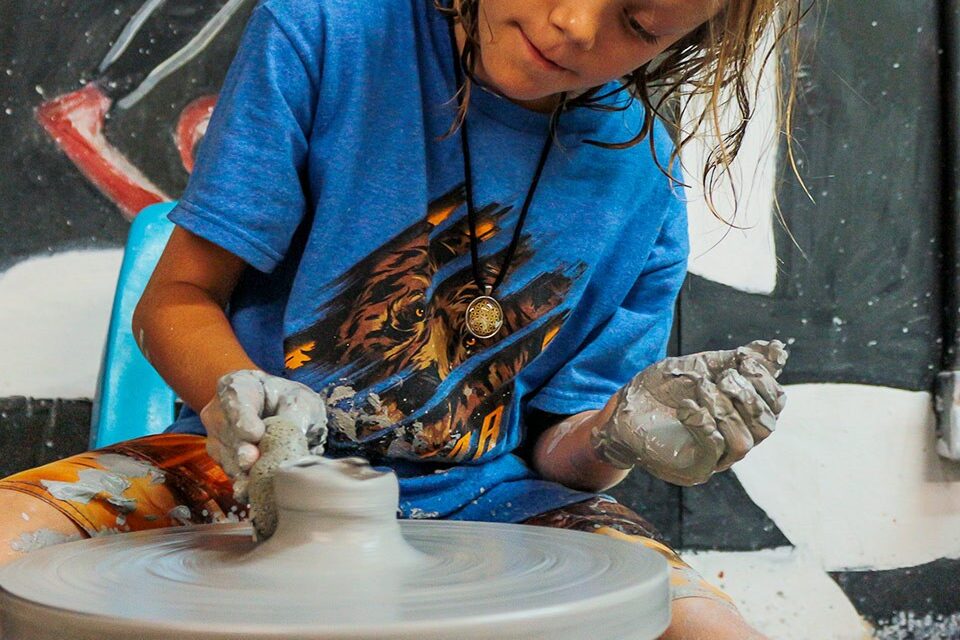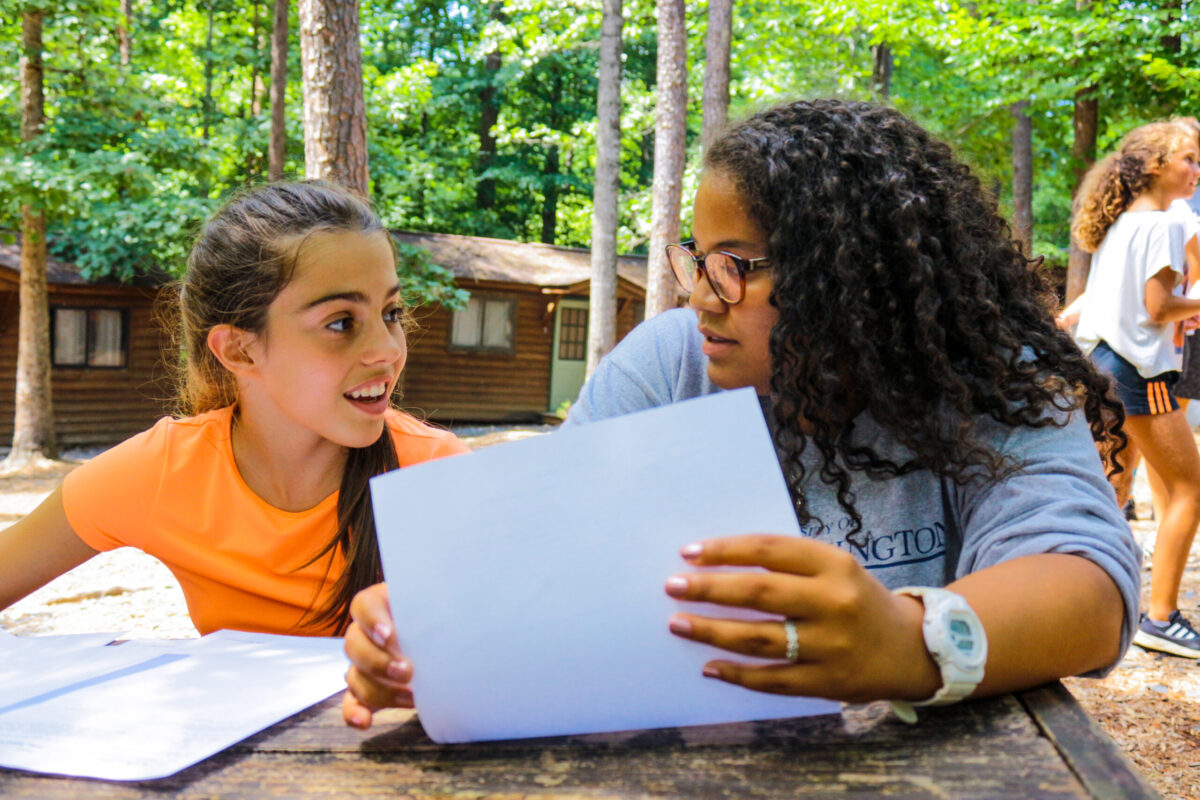Camp Friendship (and many other summer camps) adopt a screen-free policy and ask campers to keep their cell phones and other devices at home. We want campers to have the opportunity to embrace nature and new friendships without a cell phone in hand. There are boundless benefits to unplugging and connecting face-to-face at camp, and one of them is hand-writing summer camp letters!
Just because your camper doesn’t have technology at their fingertips doesn’t mean they can’t communicate with the world outside the camp bubble. Summer camps are keeping the art of hand-written letters alive.
Benefits of Hand-writing Letters
Letters written by hand are an increasingly endangered species in an ever-modernizing world. Children and teens are now spending more and more time communicating from behind a screen. Using technology can be convenient and easy; however, hand-writing has several benefits for kids and teens.
Studies show that putting pen or pencil to paper helps children practice their fine motor skills, sharpen their critical thinking, and encourage their creativity. Writing things down has also been linked to memory retention, so writing home about all the fun they’re having at camp helps all those good memories last longer!

The Charm of Traditional Mail
In a largely technology-based society, there are fewer and fewer opportunities for kids to become acquainted with addressing mail (and the taste of envelope glue — yum!). Summer camp provides a rare chance for children to send and receive traditional snail mail. For younger campers, we recommend pre-addressing mail home for them, or including a written note with your address for them to copy with their stationery.
Of course, with the postal system, delivery can take a couple days. All outgoing camper mail is collected every weekday after breakfast and taken to the post office before lunch, but sometimes, your camper beats their letter home! For this reason, we suggest traditional snail mail for campers staying multiple weeks, and opting for e-Letters for campers with shorter stays.
e-Letters
Camp Friendship offers a system to keep in touch with your camper through email correspondence: e-Letters. With this system, parents get to maintain the convenience of using technology, and your camper gets to experience the benefits of a screen-free week and practicing the art of hand-writing a letter.
Emails can be sent to your camper through your CampInTouch portal, which are printed daily in the afternoon and delivered in time for your camper to read and respond to during village time. Campers hand-write their replies on scannable sheets, which are collected every weekday after breakfast and uploaded that morning to CampInTouch. e-Letters are the most popular way to communicate between campers and their friends and family.
Care Packages
A growing number of summer camps, Camp Friendship included, have adopted “no care package” policies. Package deliveries can interrupt the day’s flow for campers, so it’s best to pack any fun items in their luggage. Though we do make exceptions for campers celebrating their birthday at camp!
As for sugary or savory treats, campers have access to snacks throughout the day at camp. They can grab some fruit or cereal from the Dining Hall in between activities. Our Snack Bar also has an entire menu to select from after Free Swim every afternoon. Campers should not have food in their cabins, as we don’t want to invite critters into bunks!

What to Write
Once you’ve chosen to send a traditional letter or an e-Letter, the next hurdle is figuring out what to write! Here are a few tips and tricks to create a meaningful connection with your camper:
Ask Questions
Your camper is having new experiences every day, between exploring new activities, making new friends, or perhaps even trying new foods. Take the opportunity to ask them about their newfound interests!
Don’t Dwell on Homesickness
Campers tend to write home during downtime during the day or before bed. These are times when campers are naturally more likely to experience homesickness. It’s important to empathize with your camper and acknowledge their feelings, but it’s best to focus on supporting their adventures at camp rather than writing how much you miss them too. Talking extensively about what’s happening at home can make your camper feel left out and exacerbate the issue. Besides, by the time you receive their letter, they’ve probably moved on to new and exciting activities and don’t feel as homesick anymore!
Keep It Lighthearted
It’s okay to keep your camper up-to-date on happenings at home, as long as they’re upbeat. Delivering bad news or updates on plans means a camper might become preoccupied with what they are missing while at camp. Tell your camper jokes, including riddles, trivia questions, or other silly stories from home so they can still feel included without distracting from their camp experience.

Keep In Touch
Corresponding with your camper is easy with the variety of options available, and your camper’s new experiences provide plenty of topics of conversation. Campers get the chance to embrace hand-writing and written storytelling, you get to keep in touch with your camper while they’re away, and everyone gets mail from the people they love — and who doesn’t love that?





